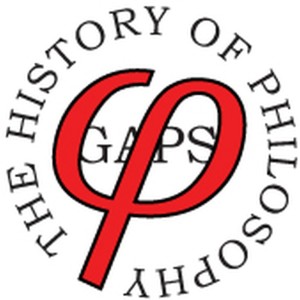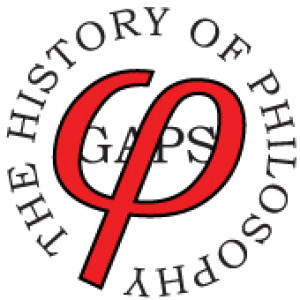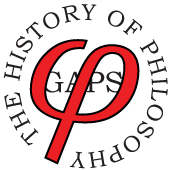Episodes

Sunday Apr 13, 2025
HoP 467 Written in Mathematics: Descartes’ Physics
Sunday Apr 13, 2025
Sunday Apr 13, 2025
For Descartes body is purely geometrical. So how does he understand features we can perceive, like color, and causation between bodies?

Sunday Jan 19, 2025
HoP 461 - Eileen Reeves on Galileo and the Telescope
Sunday Jan 19, 2025
Sunday Jan 19, 2025
We finish our look at philosophy in the Reformation era with an interview about Galileo's use of a revolutionary technology: the telescope.

Sunday Jan 05, 2025
HoP 460 - Trial and Error - Galileo and the Inquisition
Sunday Jan 05, 2025
Sunday Jan 05, 2025
The philosophical issues at the heart of the notorious condemnation of Galileo and Copernican astronomy.

Sunday Mar 03, 2024
HoP 440 - Longitudinal Studies - Exploration and Science
Sunday Mar 03, 2024
Sunday Mar 03, 2024
Iberian expeditions to the Americas inspire scientists, and Matteo Ricci’s religious mission to Asia becomes an encounter between European and Chinese philosophy.

Sunday Dec 10, 2023
HoP 434 - The Eye Sees Not Itself But By Reflection - Theories of Vision
Sunday Dec 10, 2023
Sunday Dec 10, 2023
Changing ideas about eyesight, light, mirror images, and refraction – and the skeptical worries they may have inspired.

Sunday Nov 26, 2023
HoP 433 - Nature’s Mystery - Science in Renaissance England
Sunday Nov 26, 2023
Sunday Nov 26, 2023
How scientists of the Elizabethan age anticipated the discoveries and methods of the Enlightenment (without necessarily publishing them).

Sunday Nov 12, 2023
HoP 432 - If This Be Magic, Let It Be an Art - John Dee
Sunday Nov 12, 2023
Sunday Nov 12, 2023
Science, intrigue, exploration, angelic seances! It's the life and thought of Elizabethan mathematician and magician John Dee.

Sunday Oct 15, 2023
HoP 430 - I’ll Teach You Differences - British Scholasticism
Sunday Oct 15, 2023
Sunday Oct 15, 2023
The evolution of Aristotelian philosophy from John Mair in the late 15th century to John Case in the late 16th century.

Sunday Sep 03, 2023
HoP 427 - Brave New World - Shakespeare’s Tempest and Colonialism
Sunday Sep 03, 2023
Sunday Sep 03, 2023
Can Shakespeare’s Tempest be read as a reflection on the English encounter with the peoples of the Americas?

Sunday May 14, 2023
HoP 421 - With Such Perfection Govern - English Political Thought
Sunday May 14, 2023
Sunday May 14, 2023
The evolution of ideas about kingship and the role of the “three estates” in 15th and 16th century England, with a focus on John Fortescue and Thomas Starkey.

Sunday May 07, 2023
HoP 420 - No Place Will Please Me So - Thomas More
Sunday May 07, 2023
Sunday May 07, 2023
What is the message of the famous, but elusive, work "Utopia", and how can it be squared with the life of its author?

Sunday Jun 19, 2022
HoP 399 - Seriously Funny - Rabelais
Sunday Jun 19, 2022
Sunday Jun 19, 2022
In his outrageous novel about Pantagruel and Gargantua, Rabelais engages with scholasticism, humanism, medicine, the reformation, and the querelle des femmes.

Sunday Oct 24, 2021
HoP 382 - No Lord but God - the Peasants’ War and Radical Reformation
Sunday Oct 24, 2021
Sunday Oct 24, 2021
Faced with massive political upheaval and the rise of the Anabaptists, Luther argues for a socially conservative version of the Reformation.

Sunday May 23, 2021
HoP 373 - Lords of Language - Northern Humanism
Sunday May 23, 2021
Sunday May 23, 2021
Rudolph Agricola, Juan Luis Vives and other humanist scholars spread the study of classical antiquity across Europe and mock the technicalities of scholastic philosophy.

Sunday Jul 26, 2020
HoP 354 - Greed is Good - Economics in the Italian Renaissance
Sunday Jul 26, 2020
Sunday Jul 26, 2020
Leon Battista Alberti, Benedetto Cotrugli, and Poggio Bracciolini grapple with the moral and conceptual problems raised by the prospect of people getting filthy rich.

Sunday Jul 12, 2020
HoP 353 - The Good Place - Utopias in the Italian Renaissance
Sunday Jul 12, 2020
Sunday Jul 12, 2020
Tommaso Campanella’s “The City of the Sun” and other utopian works of the Italian Renaissance describe perfect cities as an ideal for real life politics.

Sunday Jan 13, 2019
HoP 316 - Just Measures - Law, Money, and War in Byzantium
Sunday Jan 13, 2019
Sunday Jan 13, 2019
Legal and economic thought in Byzantium: the sources of the law’s authority, the relation of church and civil law, just price, and just war.

Sunday Oct 08, 2017
HoP 286 - On the Money - Medieval Economic Theory
Sunday Oct 08, 2017
Sunday Oct 08, 2017
Changing ideas about money, just price, and usury, up to the time of Buridan, Oresme, and Gregory of Rimini.

